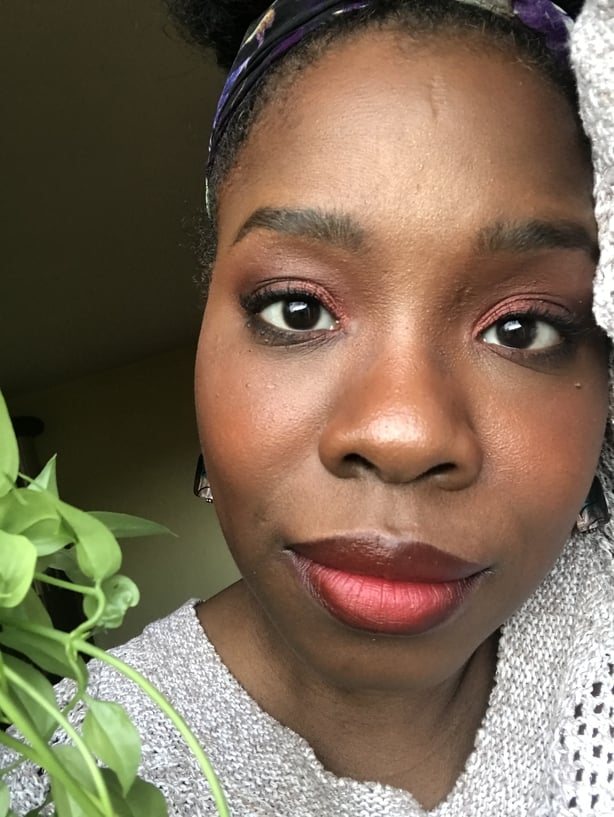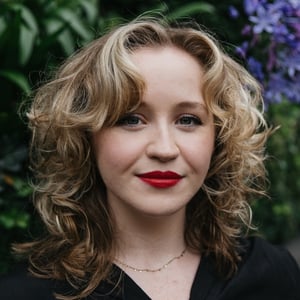Before the Covid-19 lockdowns, Mirenda Rosenberg turned to growing her own produce as a way to endure in hardship. Now, three years and over 600,000 TikTok followers later, she is teaching her community about grace, mental health, self love and tallow.
Yes, tallow – rendered animal fat.
You might have come across Rosenberg on your TikTok feed, where she's found rendering pearly white animal fat, sourced from her local butcher in Donegal, talking us through the process before turning it into soaps, body butters and balms.
In her videos, she also talks about adversity and resilience, alongside snippets of her life on a homestead just outside Letterkenny.

Originally from the United States, and working as an educator helping people rebuild thier lives after trauma – particularly domestic abuse – Rosenberg moved to Ireland in 2005.
In many ways, that was the start of a story that is "sad but it has a really happy ending", she tells me.
"That was the situation I was in in my marriage", she says, referring to her trauma work. "And when we split, I wasn't entitled to work in Ireland. I was in a really strange position and Immigration didn't know what to do with me. I was in a legal loophole.
"My abusive ex was trying to starve us out of the country, he wasn't supporting us even though the court had ordered him to do so. So I started growing food for subsistence reasons."
Adding to this was her eldest son's battle with severe eczema, the medications for which Rosenberg couldn't afford to buy. So, she began growing produce for home remedies that could soothe his skin.
"I am a survivor of abuse, and I had two special needs kids who were in primary school to raise by myself. I did not have the luxury of completely breaking down", she says. "I had to do a lot of therapy, and I had to do it with grace. I had to come out of that situation full of grace and love and forgiveness and move it forward."
We need your consent to load this tiktok contentWe use tiktok to manage extra content that can set cookies on your device and collect data about your activity. Please review their details and accept them to load the content.Manage Preferences
A homestead, she explains, is more about self sufficiency than commercial farming. In an ideal world, Rosenberg would have "two or three acres and I would have a teaching homestead where I could grow just enough food for myself and one or two other families, but then also teach people how to do that".
Homesteading also helped her settle into rural Ireland, which hasn't been without its challenges. "Being the only person of colour and having to figure out how to integrate into that community, there was a learning curve there. I was nervous about it", she said.
"I have a very different experience than a lot of other people of colour that I've heard have talked to. When we moved to rural Ireland, my community embraced me, but I think they embraced me because I am surrounded by farmers.
"We had something to connect on and I would ask them questions and they would see me out working the land every day. And that brought me some social capital", she says.
So when Rosenberg called into a neighbour to ask for the manure sitting in his shed, there was a mutual need to be met. In time, she would bring around parcels of food she had grown, and homemade tallow body butter for the farmers' wives.
We need your consent to load this tiktok contentWe use tiktok to manage extra content that can set cookies on your device and collect data about your activity. Please review their details and accept them to load the content.Manage Preferences
Part of her healing journey involved learning to protect her peace, a skill she's had to rely on more and more since sharing her life online.
While she stresses that the snippet we see online is only a fraction of her life, Rosenberg acknowledges the harassment that can come with being a Black woman simply living her life online, while also noting that it isn't the most extreme form of abuse she could be receiving.
"Because I'm American and Black, I get less racial abuse than somebody that might be from Africa or anywhere else. I don't know why Black Americans get more privilege, but we do."
A recent interaction with a follower – who queried Rosenberg's decision to mention a GoFundMe she's running to buy a house and open a homesteading school – led to an onslaught of racial abuse. "I got 'go back to Africa'", she says. "I had to take a step away because it was so bad."
We need your consent to load this tiktok contentWe use tiktok to manage extra content that can set cookies on your device and collect data about your activity. Please review their details and accept them to load the content.Manage Preferences
Afterward, Rosenberg sat on a Zoom call with her friends, cheering her on as she deleted the racist comments. There had been a similar wave of abuse last year after she took part in an event for Black History Month, which is October:
"I think that's something people don't realise about being a black content creator, particularly in Ireland."
Still, Rosenberg sees the opportunity for teaching in this, and instead of laughing them off, ignoring them or clapping back, she encourages her followers to engage with or think about them gracefully.
"It's taken me two years to train the community how to have boundaries, how to challenge people who are rude in the comments without getting embroiled in back and forth, fights and discussions and whatnot", she says.
"As I grew as a person and made the choices to do that, I learned that my peace is incredibly important to me. Part of maintaining my peace is not allowing other people to emotionally provoke me. That power remains within myself."
If any of these issues affect you, and you need to talk to someone, you can reach Women's Aid at 1800 341 900 or find their website here.

